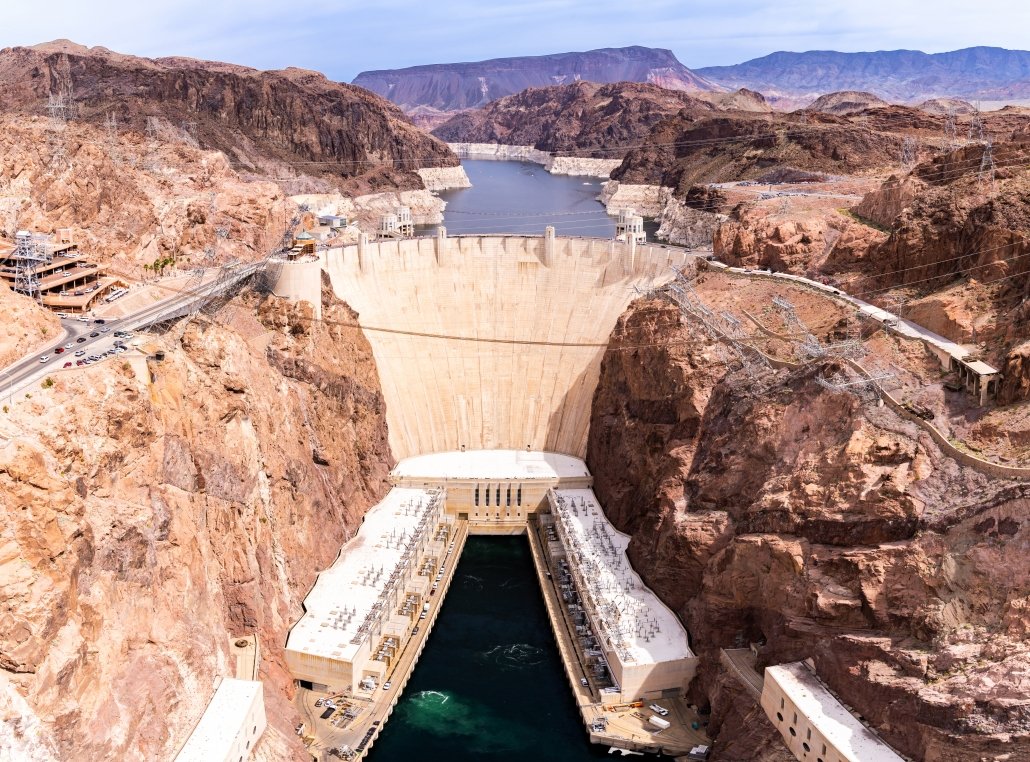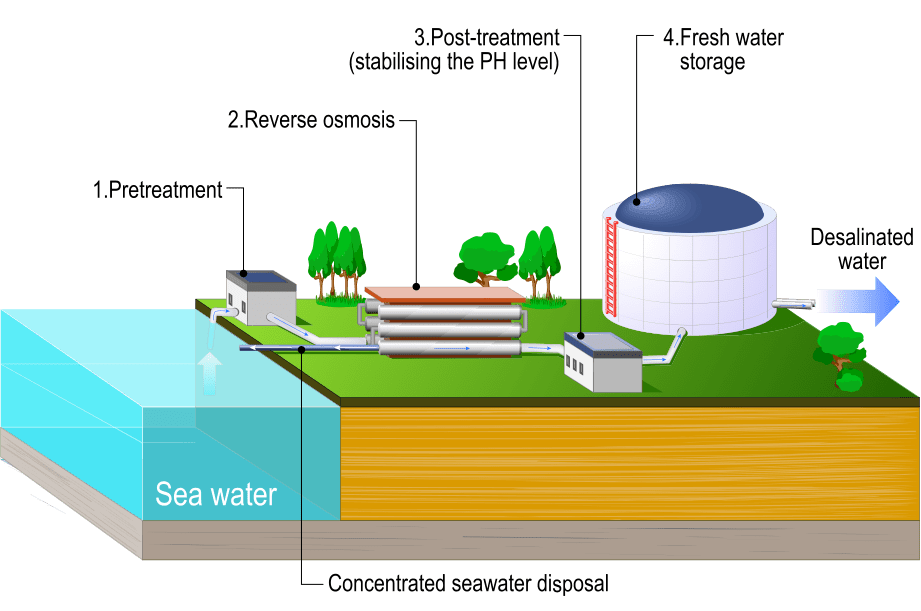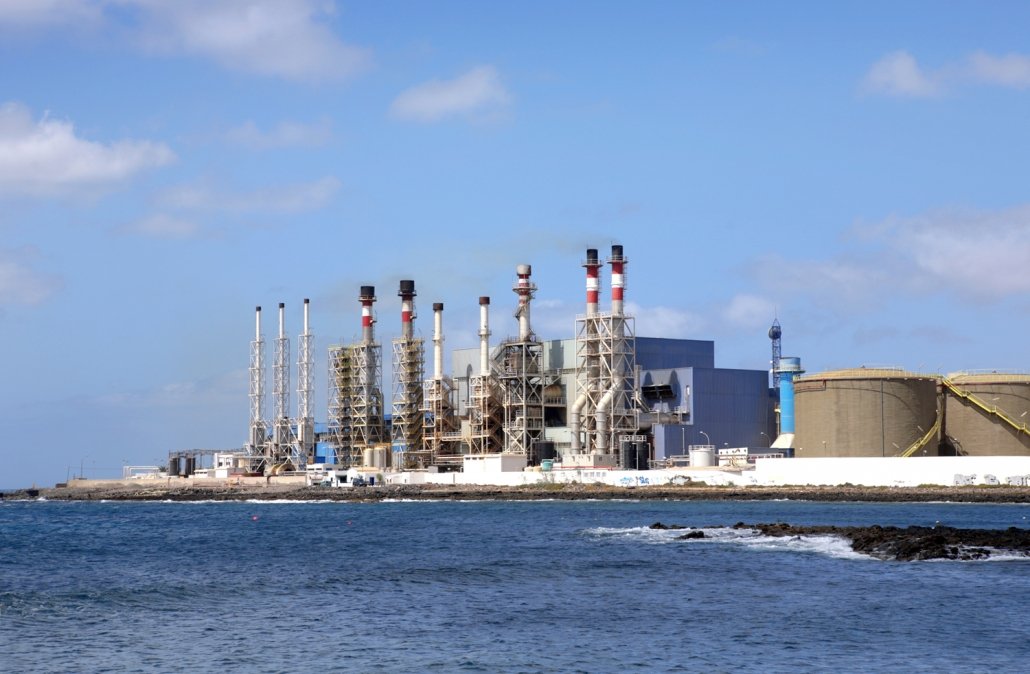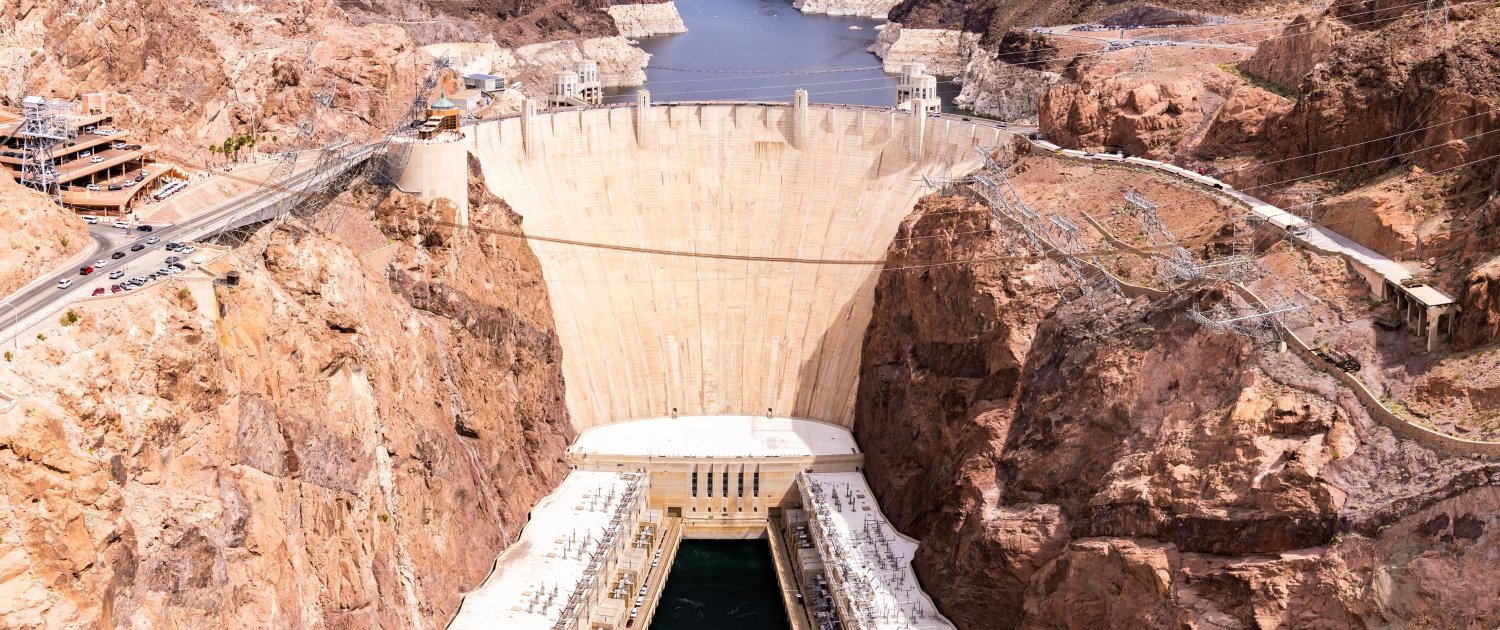Strategies to increase water supply
Diverting supplies and increasing storage
In some parts of the world, evaporation can rapidly deplete water supplies. To overcome this, some countries divert surface water and pump it underground to be stored in aquifers. An example is Oklahoma, the USA, where water is stored deep underground and can be used when water availability is low.
Dams and reservoirs
Through the construction of dams, water can be controlled by creating reservoirs. Water can be stored in reservoirs during periods of water surplus and released when it is needed for activities such as irrigation. Many dams are also used to generate hydroelectric power (HEP) and control downstream flooding.

Hoover Dam on the Colorado River in Arizona and Nevada, USA
Despite the benefits dams and reservoirs can bring, they have disadvantages. Dams and reservoirs are costly to construct and can lead to people’s displacement, farmland flooding and the loss of ecosystems. The Three Gorges Dam in China displaced thousands of people and flooded a number of settlements.
Water transfers
Water transfer schemes move water from areas of surplus to areas of water deficit using pipelines or canals. Although the schemes can be costly, they are very effective and can be found in both HICs and LICs/NEEs. There are several water transfer schemes in the UK.
Desalination

A desalination plant
Desalination involves removing salt from seawater to create fresh water. The process is very energy-intensive and expensive, so it is only a viable option in HICs.

Desalination Plant in Lanzarote, Spain.
Desalination currently occurs in Australia, Saudi Arabia, Israel, Spain and the USA. In the future, desalination may become more common in NEEs as the increasing demand for freshwater restricts economic development.
Desalination is not without its environmental impacts. Salt waste can damage ecosystems along with the high carbon emissions due to energy demands.
Related Topics
Use the images below to explore related GeoTopics.



